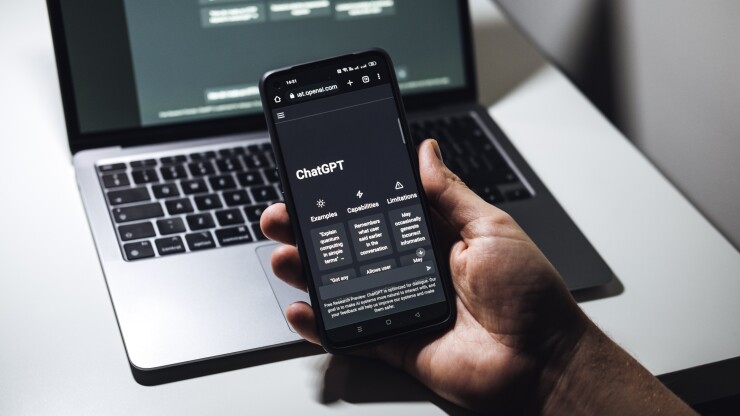Launched just four months ago, the artificial intelligence chatbot ChatGPT has already proven to be an effective professional tool. However, employers are also worried it can help job candidates cheat and lie their way to a new job.
From writing customized content in multiple languages to writing, debugging and explaining code, ChatGPT can help workers across various industries get their job done faster and better. Employers may find themselves struggling to keep up and banning the
"In the recruitment process, we try to find out if people are capable and competent," says Satish Kumar, founder and CEO of Glider AI, a company dedicated to digital hiring solutions for employers. "But we must realize the inevitability of ChatGPT and come up with a new set of rules instead of banning the technology outright."
Read more:
ChatGPT already has over 100 million users worldwide and that number is only likely to grow. Ultimately, Kumar believes it's counterproductive to pretend potential employees will not use ChatGPT. They may have already used it to write their resume and cover letter, or even prepare answers to interview questions. Rather than fighting ChatGPT, recruiters should incorporate the AI tech within their hiring processes skills-based assessments, advises Kumar.
"The purpose of an assessment is to measure innate critical thinking skills and whether they have the foundational knowledge required of the role," he says. "We can have two different assessments: one where they are not allowed to use any AI, and another that intentionally evaluates the candidates' ability to be resourceful using AI."
In other words, candidates can be tested on their ability to use the tools at their disposal. Kumar predicts widespread adoption of ChatGPT, especially in the tech world, is already here and there is no point in fighting it. Recruiters will get a better understanding of how the candidate will perform in their workplace by examining their ability to take advantage of technology.
Read more:
However, Kumar underlines that companies should still assess a candidate without AI assistance to see what they know on their own. Discrepancies between the two tests can inform hiring managers of the candidate's strengths and weaknesses more holistically. Kumar also points out that by setting rules around the use of ChatGPT during candidate assessments, there is likely to be less cheating and recruiters can be more confident in their choices. Believe it or not, the main reason behind cheating is unclear rules and parameters, emphasizes Kumar.
"If we can assess the resourcefulness of the candidate, that will be a great evaluation," he says. "The people who are going to use these tools to do their job better and more effectively are not the ones we should worry about."
Read more:
Moreover, recruiters can utilize ChatGPT in just about every step in the hiring process, whether it's putting together an engaging template for job posts and candidate outreach or preparing a list of interview questions most relevant to the role at hand. ChatGPT may be the next Google — a tool that just any worker and student can use to get closer to an informed answer.
"The world has already moved ahead," says Kumar. "And nobody can control the world."






